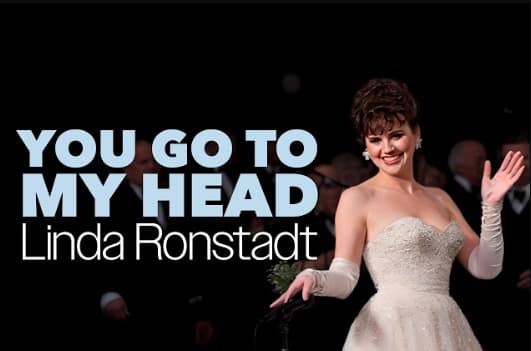
An Intoxicating Classic from the Voice of a Generation
The song captures the feeling of being utterly captivated and disoriented by a person’s presence, as if under a spell.
In the late 1980s, amidst the landscape of synth-pop and hair metal, Linda Ronstadt, an artist who had already reshaped the contours of pop and rock music for over two decades, chose to look backward. She embarked on a journey that would become a magnificent three-album collaboration with the legendary arranger and conductor Nelson Riddle. The second of these albums, For Sentimental Reasons, released in 1986, was a testament to her versatility and a poignant homage to the Great American Songbook. On this record, she breathes new life into a timeless classic: “You Go To My Head.” This rendition, while not a mainstream chart-topper—the album itself peaked at #46 on the Billboard 200 chart—served as a deeper artistic statement. It was a soulful, jazzy serenade that spoke directly to the heart of the matter, a song that had already been recorded by greats like Billie Holiday and Frank Sinatra.
The original “You Go To My Head” was written in 1938 by J. Fred Coots and Haven Gillespie. It is a song about being completely overwhelmed by someone’s presence, so much so that they “go to your head” like a glass of champagne or sparkling burgundy. Ronstadt’s rendition, with Riddle’s lush, sweeping string arrangements, transforms this feeling into a cinematic experience. It is a song for those of us who have known that dizzying, intoxicating feeling of unrequited love or infatuation—the kind that makes you lose your grip on reality and fills your mind with nothing but the object of your affection. The lyrics, “You go to my head, and you linger like a haunting refrain,” perfectly describe a memory that refuses to fade, a person who occupies every corner of your thoughts. It’s a bittersweet feeling, as the song hints at a lack of a future, yet you can’t help but be consumed by the present moment.
For those of us who grew up with Linda Ronstadt’s voice as the soundtrack to our lives—from the rock-and-roll anthems of the ’70s to the Latin-infused melodies of the ’80s—her pivot to these timeless standards was a stunning and beautiful surprise. It was a reminder that her voice was a force of nature, capable of delivering a blistering rock tune one moment and a tender, heart-breaking ballad the next. In “You Go To My Head,” she strips away the pop production and relies on the sheer power and emotional depth of her instrument. Her voice is clear, emotive, and full of a quiet ache that makes the song’s meaning all the more profound. It’s a song that evokes a sense of nostalgia for a simpler, more elegant time, a time when a well-written melody and a masterful vocal performance were all you needed to transport an audience.
As you listen, you can almost feel the soft glow of a dimly lit room, the clink of glasses, and the weight of a memory that will never truly let you go. It’s a song for the quiet moments, for sitting and reflecting on a love that once was or a feeling that still lingers. It’s a beautiful, heartbreaking reminder of the power of a single person to occupy your mind, a testament to the fact that some feelings, like some songs, never truly fade.